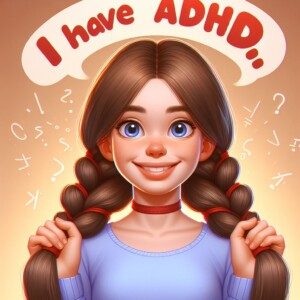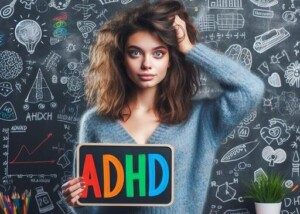
What more likely leads to ADHD? Parenting methods or innate brain wiring?
If you’ve ever known someone whose child was diagnosed with ADHD, or, if your own child has received this diagnosis, perhaps you’ve often wondered if errors in parenting were mostly responsible, as opposed to just how the child’s brain is naturally hardwired.
“ADHD is a ‘brain wiring’ issue,” says Dr. Divyansu Patel, MD, a psychiatry specialist for 15+ years.
Dr. Patel explains, “It can be genetically inherited, meaning at least one of the parents has had symptoms.”
What if the child seems to have a behavioral issue, such as acting “bratty” in the presence of his or her parents?
What if one of the parents is very lenient, and the other seems to be indifferent, which then creates the illusion of a parenting issue that promotes the hyperactive, impulsive or “rude” behavior?
Dr. Patel points out that in such a case, though the child may have clinical signs of ADHD, that child may also have what is known as oppositional defiant disorder.
Though some people may be tempted to consider this a more technical term for “disobedient child” or a “child whose parents are not consistent with rules,” Dr. Patel explains the following:
“This is a comorbid disorder with ADHD about 40% of the time.
“ODD is more about behavior issues, as it is managed with therapy and then medication.
“Typically, it can originate or be exacerbated when parents are not on the ‘same page’ about parenting.”
ADHD and the Brain
Neuroscientists are looking more towards the miswiring of the brain’s reward system as a potential cause of ADHD, vs. so-called bad parenting.
For instance, study results appear in the journal Neuron.
The researchers from the Mayo Clinic in Florida and Aarhus University in Denmark investigated a type of neuron that regulates pleasure, reward, motivation and cognition.
These dopaminergic neurons are thought to be connected to the development of attention deficit hyperactivity disorder.
SorCS2 is a receptor system that’s responsible for the correct wiring pertaining to the dopaminergic neurons. This occurs during embryonic development.
However, after the brain matures, if there’s a cut in SorCS2, a two-chain receptor results. This two-chain receptor causes cell death.
SorCS2 acts as a molecular switch, say the scientists, between what seems to be opposing effects in proBDNF, a neuronal growth factor.
This growth factor aids in the selection of cells that can most benefit the nervous system, and it also gets rid of the cells that are less beneficial.
This way, a finely tuned network of neurons is established.
Mice that are deficient in SorCS2 lack a response to proBDNF.
The contacts between dopaminergic neurons are dysfunctional.
The paper also notes that numerous other studies have reported that people with ADHD commonly exhibit miswiring in the said brain region.
Think of a single-chain protein that’s the SorCS2: a long chain composed of amino acids.
Now, imagine it gets snipped in two. It now functions differently, leading to damage in the nerves of the peripheral nervous system.
What is ADHD?
“ADHD” is actually a term that describes a number of symptoms or signs.
So if someone “has ADHD,” they have enough of these features to get the diagnosis.
ADHD is also considered a neurodevelopmental disorder that one never outgrows. A first-time diagnosis may even occur in adulthood.
“Typical symptoms include inattention, poor concentration, poor organization, poor attention to detail, forgetful in daily activities,” says Dr. Patel.
“They can also have hyperactivity which is typical in childhood, which can include fidgeting, squirming when seated, difficultly with remaining seated, hard time playing quietly, talking excessively.
“Impulsivity is also a symptom including impatience, a hard time waiting for a turn and interrupting.”
ADHD in the form of atypical brain wiring also comes with perks such as easily adapting to fluctuating schedules and the ability to hyperfocus on a topic that one is passionate about.

 Dr. Patel
Dr. Patel
























